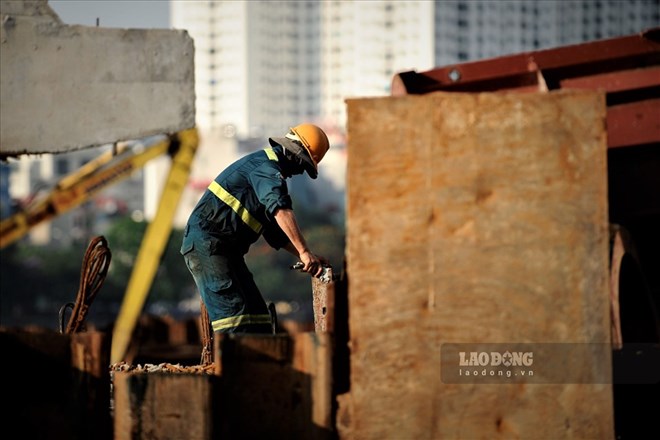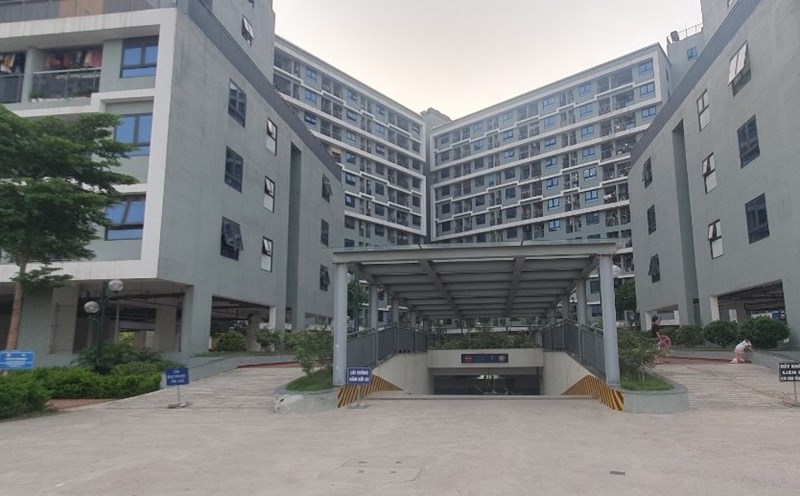Strong decentralization of authority in construction
The Government has just issued Decree No. 175/2024/ND-CP, detailing and guiding the implementation of the Construction Law on construction management. This is an important step to replace Decree No. 15/2021/ND-CP with many notable amendments, aiming to enhance the effectiveness of state management, promote decentralization, apply digital technology and simplify administrative procedures.
The Ministry of Construction said that one of the important highlights of Decree 175/2024/ND-CP is the strong decentralization of authority from the central to local levels, helping to reduce the burden on high-level agencies, while creating conditions for localities to be more proactive in management.
Regarding the issuance of practice and capacity certificates, the Decree has given the local authorities full authority to issue Class I practice certificates and construction activity capacity certificates. This is an improvement to simplify the process, eliminate inappropriate requirements, and help reduce costs and time for organizations and individuals participating in construction activities.
Regarding the authority of appraisal and acceptance, the Decree also implements thorough decentralization. Localities will be primarily responsible for appraising the Feasibility Study Report, construction design implemented after the basic design and inspecting the acceptance work. Only projects with special, complicated structures or those without standards and regulations will fall under the authority of specialized ministries.
This approach not only increases local initiative but also helps save resources, ensuring work is done quickly and effectively.
Another notable content is the reduction and optimization of administrative procedures in construction activities. The Decree expands the scope of projects that only need to prepare a technical economic report (increasing the total investment from 15 billion VND to 20 billion VND). Cases of design adjustments in the following steps that do not require project adjustments are also minimized, helping to simplify the process, reduce pressure on management agencies and create favorable conditions for investors.
According to calculations, with these strong reforms, about 95% of appraisal and acceptance procedures, and 100% of procedures for granting practice certificates, will be transferred to localities. This not only helps shorten the time for processing documents but also significantly reduces the burden on central agencies, creating conditions to focus on strategic and directional tasks.

Simplify administrative procedures
Simplifying administrative procedures is a major focus of Decree 175/2024/ND-CP. The Government has directed the standardization of procedural documents, the elimination of unnecessary paperwork, the shortening of processing time, and the enhancement of transparency and efficiency in the settlement process.
One bright spot is the removal of the requirement to provide information and legal documents that are already available on the national database system. When these systems are operational, connected and shared, people and businesses will no longer have to perform duplicate declaration steps, minimizing inconvenience in the process of implementing administrative procedures.
The Decree also combines some areas of practice certificates that do not require specialized expertise, such as project management or construction supervision, and extends the validity of practice certificates from 5 years to 10 years. These changes not only help reduce procedural burdens but also increase flexibility, meeting the development needs of the construction industry in the new context.
In addition, the Decree sets higher requirements for transparency and science in management. The criteria, categories and contents that must be complied with when carrying out administrative procedures such as appraisal, construction permit issuance, and practice certificate issuance are all clearly stipulated. This helps to limit misunderstandings and mistakes and ensures that every step of implementation complies with the law, aiming at sustainable development.
In addition, the Decree also focuses on eliminating duplicate management contents between steps in the investment process. The new process not only shortens the time but also minimizes arising problems, creating more favorable conditions for construction investment projects.











